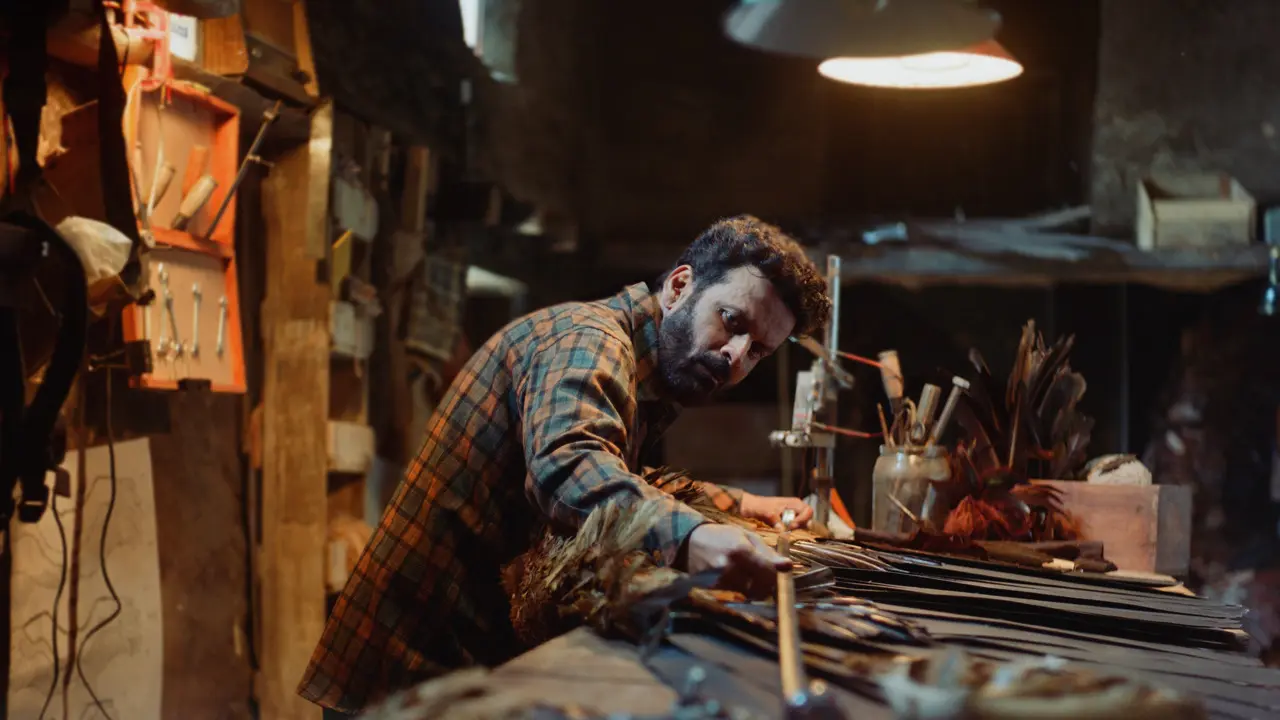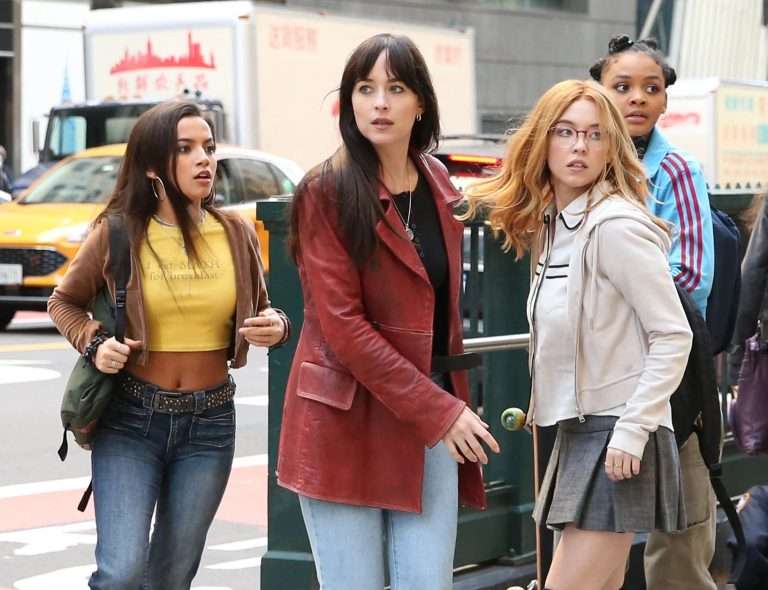After watching Raam Reddy’s “Jugnuma –The Fable” (2025) in a late-night show in a smog-heavy Indian city, I came home and threw up. Not because the film was bad, nor because the food I had eaten at a near-empty restaurant had gone slightly sour, but because the air around me felt burnt. Burnt with pollution, and burnt with my longing for the hills, for clean air, blue skies, the coniferous trees and apple orchards that glowed across the film’s frames. On screen, men tend to their bountiful orchards stretched over three Himalayan mountains. But beneath this abundance lies another world—a fragile realm of fireflies, nomads, and fairies who wander the earth, unaware that it was never meant to be their home.
So when Dev (played by Manoj Bajpayee), the owner of one of the region’s largest apple orchards, confronts the mysterious burning of a tree on his estate, the question that flickers beneath the flames is this: whose tree is it, really? Does it belong to Dev, who inherited the land like a legacy of quiet colonization? Or to the labourers who toil day and night to keep the orchards alive? Perhaps to his loyal manager, Mohan (played by Deepak Dobriyal), a local who knows the soil more intimately than its owner ever could? Or to the villagers who have tended these slopes for generations, now uneasy about the pesticide seeping through the roots? The burning trees feel less like an accident and more like a warning: nature’s way of reminding us that ownership is an illusion, and the earth eventually claims what is hers.
Read Review: The Fable (Jugnuma) (2024) ‘MAMI’ Movie Review: Magical Realism in the Himalayas
A group of nomads has pitched camp just above the orchard where Dev lives with his family, including his wife Nandini, their restless young son, Juju, and their daughter, Vanya, home from the hostel for the holidays. The wanderers speak no words, only hum a low, rhythmic sound that feels almost like the forest breathing. Among them is a horseman whose presence unsettles Vanya and, perhaps, the balance of the place itself. Who are these nomads who move lightly through the land, leaving no trace? Are they the ones setting the fires, as the villagers suspect, or are they merely witnesses to an ecosystem already burning from within?
The film also lays bare how caste, class, and capital intertwine with ecology. Dev’s relationship with his workers reflects a history not just of inheritance, but of entitlement. There’s familiarity between him and the labourers, yes, but it is tinged with the brusqueness of possession, as if gratitude can coexist with domination.
When a corrupt patwari and a squad of armed guards arrive, claiming to ‘help’ while the trees burn, the illusion of stewardship collapses entirely. The question lingers: “Who do the trees really belong to?” It is not just a political question, but also an ecological one. It asks whether the land can ever truly belong to those who see it as property, and whether nature, tired of being subjugated, is finally reclaiming her voice.
Also Read: 10 Overlooked Fantasy Films That You Probably Didn’t See
While watching the movie, I could not help but think of Gurgaon, the city I travel to for work, a board game for crony capitalists. Towers worth crores rise on what were once wetlands and riverbeds, sold as premium real estate with infinity pools and manicured gardens. But when it rains, the rivers remember. They surge back to reclaim what was theirs, flooding parking lots of BMWs and brightly lit underpasses, washing away the illusion of control.
I thought of Chennai too, where the poromboke, the shared commons meant for water and community, has been carved up to build glittering IT townships like Sholinganallur. And of the Himalayas, where rivers once worshipped are now dammed, diverted, and paved over by hotels and holiday homes. From Darjeeling to Manali to Mussoorie, landslides and floods have become nature’s language of protest.
This is exactly why we need films like “Jugnuma” now more than ever, not just as stories, but as reckonings. Because what’s burning in the orchards of Dev’s estate isn’t only an apple tree; it is history itself—the centuries of ownership, extraction, and entitlement that have defined how humans relate to the land.
The film understands what many climate reports fail to: that the ecological crisis is inseparable from the social one. The same hierarchies that structure caste and class also shape who gets clean air, who gets water, and who lives on the floodplain. The same colonial logic that once claimed forests and rivers in the name of empire still runs in the veins of capitalism today: building, buying, selling, and enclosing.

Through its slow, meditative pace, the film forces us to confront what we usually turn away from. The violence of cultivation itself. The pesticide-sprayed apples and the illusion of productivity all reveal an ecological arrogance that depicts human hierarchies. And yet, the film does not accuse. It mourns. Its magic lies in the fireflies, in the nomads who hum instead of speaking, and in the villagers who still believe in fairytales—in a world that listens and coexists with nature without trying so desperately to own it.
In that sense, the film turns into a quiet but piercing mirror of our times. As India’s cities buckle under the weight of their own ambitions—as Gurgaon drowns, Bengaluru runs dry, and Himalayan rivers lash out against reckless construction—we glimpse in Dev’s burning orchards a reflection of our own hubris. The hills in the film are more than a backdrop; they feel alive, sentient witnesses to a history we keep erasing, silent custodians of memories we choose to forget.
To watch “Jugnuma” is to realize that the climate crisis is not coming. It’s already here, quietly reshaping our moral imagination. The film’s fable-like language invites us to reimagine what justice might look like when nature itself becomes the judge. It asks us to bring humility back into our relationship with the natural world, to see sustainability not as a catchphrase but as a way of thinking and living. “Jugnuma” is a quiet reminder that true healing begins the moment we stop viewing the Earth as an inheritance to be claimed and start recognizing it as an ancestry to which we belong — a living legacy, not a possession.






![Stephen King’s It [1990]: Poorly Executed. Terribly Dated. Downright Forgettable.](https://79468c92.delivery.rocketcdn.me/wp-content/uploads/2017/08/It-768x432.jpg)
